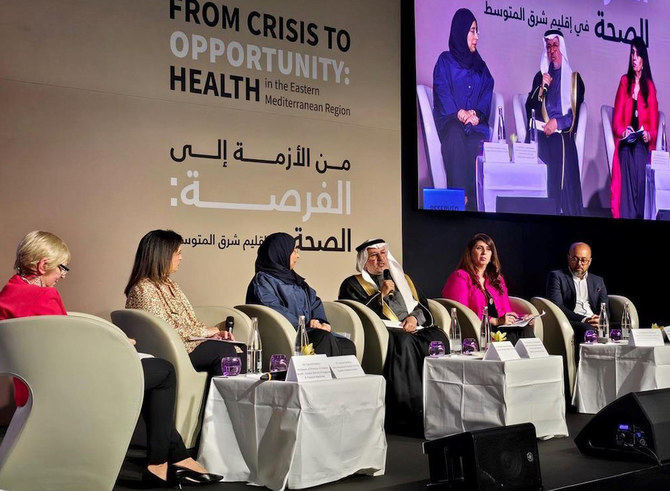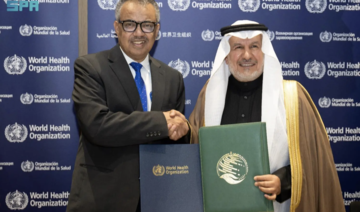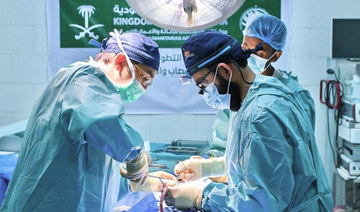RIYADH: Dr. Abdullah Al-Rabeeah, supervisor-general of Saudi aid agency KSrelief, said he wants to boost the partnership with the World Health Organization to improve and coordinate response efforts, ensure all resources are allocated efficiently, and enable communities to become more resilient and independent.
Speaking at a session titled “From Crisis to Opportunity: Health in the Eastern Mediterranean Region,” at the 77th World Health Assembly, held in Geneva, Switzerland, Al-Rabeeah thanked the WHO for efforts to address the humanitarian crises in the Eastern Mediterranean region, including conflicts, migration and economic instability.
He said that the Saudi leadership made intensive and generous efforts to alleviate the suffering of millions of people in need in the region and around the world, particularly children, women and vulnerable groups.
Al-Rabeeah said that the total humanitarian assistance provided by Saudi Arabia to the WHO Regional Office for the Eastern Mediterranean exceeded $1.4 billion. He added that KSrelief recently announced a $500 million contribution to efforts to eradicate polio over the next five years.
He mentioned that the center provides comprehensive health treatment and support services in humanitarian emergencies.
Furthermore, KSrelief has implemented various volunteer programs in the medical sector as part of its relief and humanitarian endeavors, including 298 projects worth over $46 million in the Eastern Mediterranean region.
Al-Rabeeah urged all parties in conflict areas to ensure that relief aid providers are allowed to deliver aid in a safe and effective manner.
When aid delivery is prevented and attacks on humanitarian workers and hospital staff are allowed, he said, those in need suffer even more. The situations in the Gaza Strip and Sudan are clear examples of this, he added.
Al-Rabeeah said that KSrelief works closely with its partners to overcome challenges and ensure the safe delivery of aid even under the most difficult circumstances. For instance, during the siege of Taiz in Yemen, the center used airdrops to deliver assistance and even resorted to camels to deliver medical supplies, oxygen cylinders and other urgent items to remote mountain locations where health services were either very limited or unavailable, he said.
In Gaza, the center succeeded in assisting with the area’s current challenges.
“Restricted access to Gaza has led to severe shortages of food, water, medical supplies and other much-needed items,” he said, urging restrictions be changed to save lives, especially those of children, women and the elderly.
Al-Rabeeah urged the international community to take decisive action to protect health facilities and humanitarian workers, and all authorities to abide by international humanitarian law.
He also called for involving healthcare workers in policy-making processes, to ensure that their expertise and experience are used to shape effective healthcare strategies.
Al-Rabeeah emphasized the crucial role of international collaboration in ensuring that all people in need have access to humanitarian assistance and medical care.



























